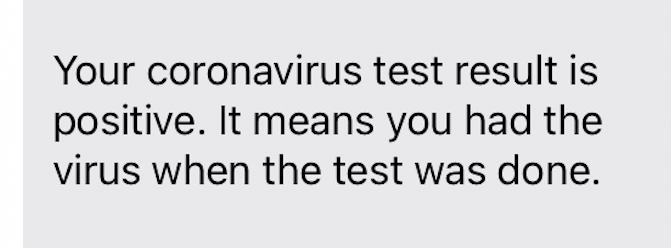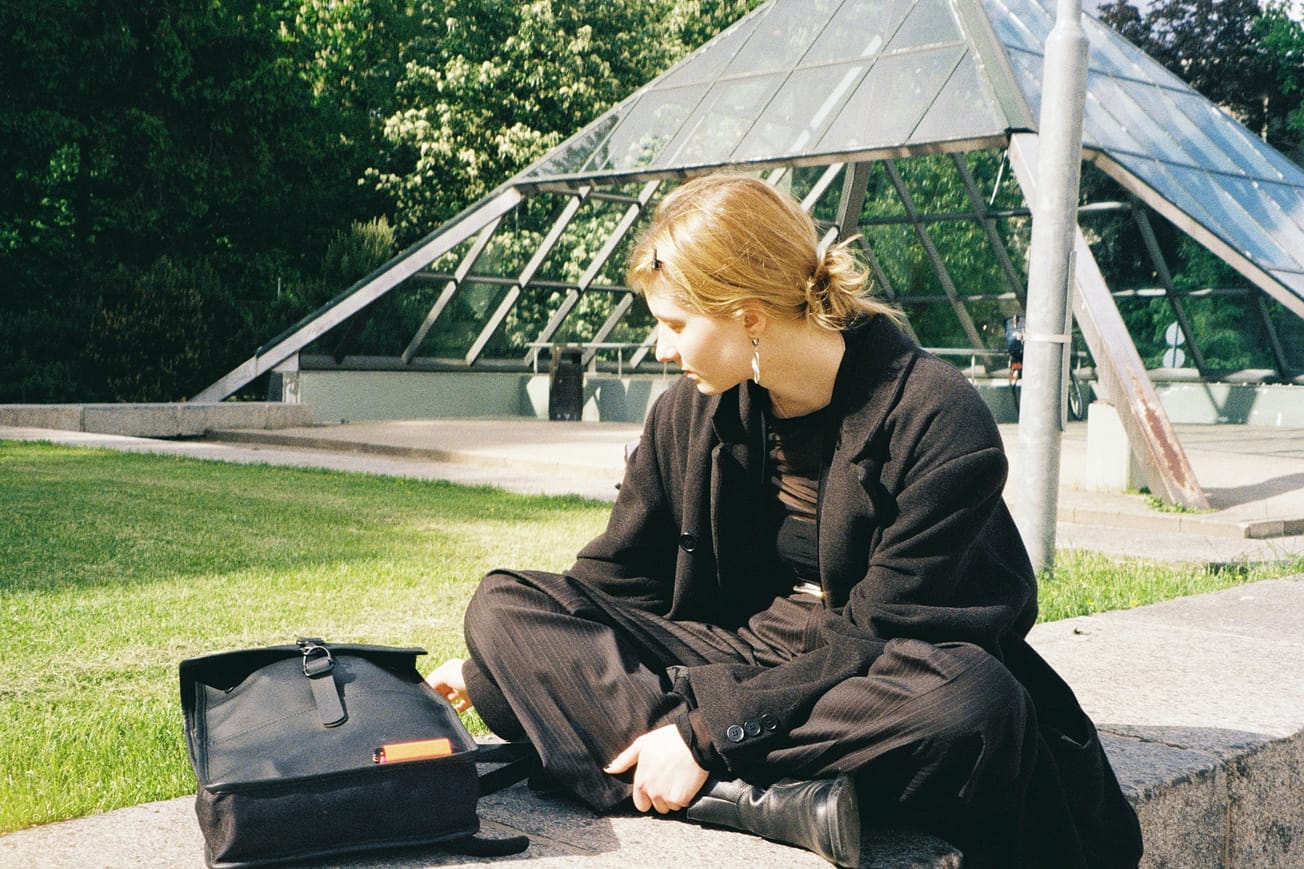By Emily Fromant, First Year, English
The Croft // If you've received a positive test result, you might be feeling stressed, worried or unsure what to do. Emily talks us through some simple ways to look after yourself and keep stress levels down.
NHS COVID-19 NOTIFICATION: Your coronavirus test result is positive. It means you had the virus when the test was done. You must, by law, self-isolate for 10 days from the start of your symptoms.
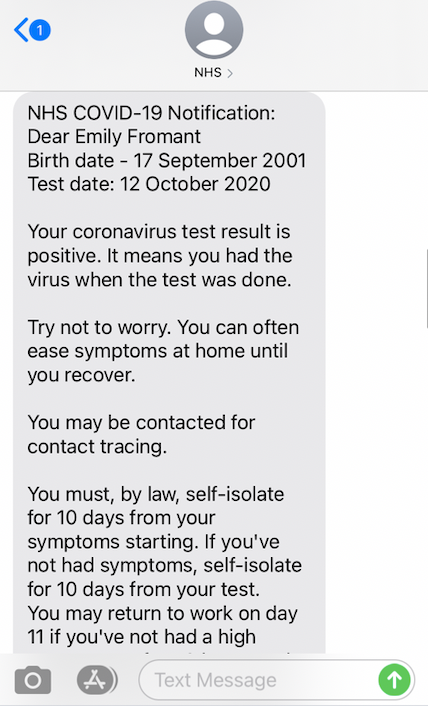
So, you’ve found out you’ve tested positive for COVID-19, and, just like I was when I received a similar text, are most likely feeling a whole wave of emotions right now. Here are some steps I took to help relieve my feelings of stress:
Food
- This was something that caused me a huge and unnecessary amount of anxiety. I was scared that I’d run out of food, and obviously was not able to go out and buy any. So, what did I do?
- I contacted the university for a food box. Whilst I was not a fan of some of the food that arrived, I tried to be optimistic and see this as an opportunity to be a bit more adventurous in the kitchen.
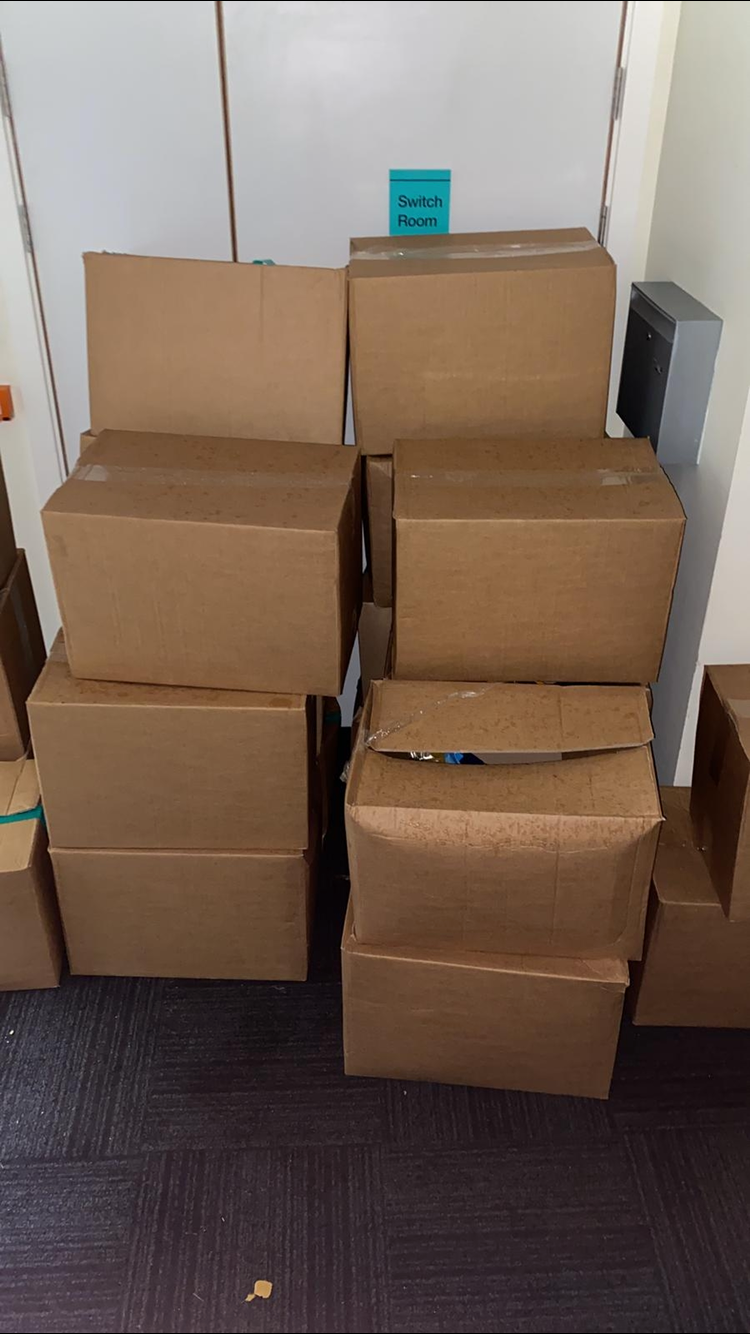
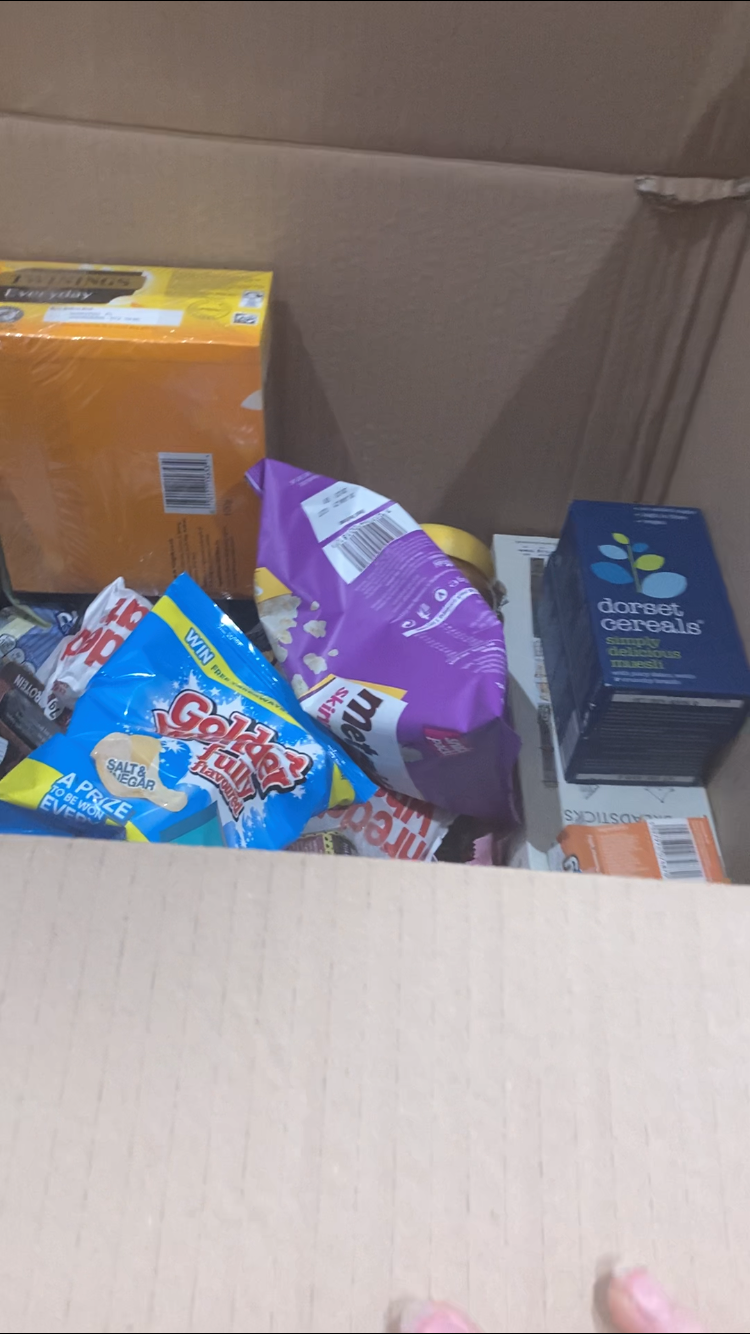
- I also contacted someone in my block who was not isolating and asked them to pick up some food for me when I was running low – I would pay them back, and they left the food outside my flat.
Medical kit
- Something else I recommend for those who are yet to test positive is to have a ‘medical kit’ filled with things to help ease the discomfort of COVID-19 symptoms – paracetamol and eyedrops honestly became my best friends in my two weeks of isolation.
Contact the university and professors
- One of the most important things to do to help relieve stress is to receive an extension on any work you may need to hand in and to email your professors to let them know. The university’s extension request and extenuating circumstances information is available here. This will take a weight off your shoulders and allow you some time to focus on yourself and to rest if you’re not feeling well.
- Ask any classmates to send you notes of seminars you may miss, and email your professors asking if they can record online seminars if they do not already so that you can access them when you’re feeling up to it.
Stay in touch
- If you can, keep messaging and talking to your friends and family – having someone familiar and friendly to talk to might distract you and help lift your spirits.
Take up a new hobby or book!
- If you aren’t feeling too sick and your main cause of anxiety is fear of boredom, try and start something new. Take this time in isolation as a new way to focus – I downloaded Audible and listened to some books I had been meaning to read.
If you are ill
- I was ill when I had COVID-19 and the worst thing I did was try and continue working whilst I knew I was sick. It made my feeling of exhaustion last for much longer than it could have.
- You need to allow yourself to have a break: take this time to lie in, watch a lot of movies, drink lots of water – view this period as a rest for your body.
- Remember to call NHS 111 for medical advice if you’re feeling very unwell.
Take these next 10 days to listen to and take care of your body. Once you remove all the responsibilities weighing down on you, allowing yourself to truly do nothing is the best way to deal with any anxiety.
Remember that all your loved ones and friends will still be there once you feel well enough again. Take some time out, put your wellbeing first and allow yourself time to recover.
Featured image: Epigram / Emily Fromant

